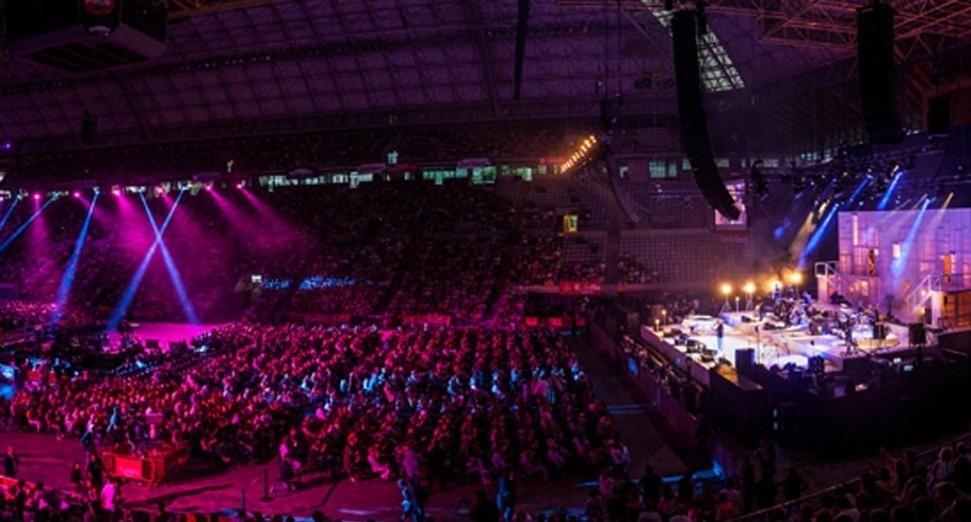
5,000-person COVID-19 research concert in Spain shows “no sign” of increased infection
News
A 5000-person concert held in Spain has shown “no sign” of increased COVID-19 infections, researchers have said.
On 27th March, 5,000 music fans attended the concert at Barcelona’s Palau Sant Jordi arena as part of a series of pilot events, which tested the effectiveness of rapid coronavirus testing as a way of preventing infections at large events.
Attendees had all tested negative for coronavirus prior to the event. Guests wore masks, but socially distancing was not required. You can see footage from the event below.
Only six of those in attendance at the concert tested positive for COVID-19 in the two weeks following the event, which is lower than the infection rates seen in Spain’s general population. The rate of infection at the event was deemed by researchers to be half that of people in the same age bracket in Barcelona.
Researchers concluded that at least four of those who tested positive were infected somewhere other than the concert. “There is no sign that suggests transmission took place during the event,” infectious disease specialist Josep Maria Llibre said during a news conference on Tuesday.
Spanish indie rock band, Love of Lesbian, who performed at the concert tweeted: “We hope that from now on, after these excellent results, the world of culture will be listened to as it deserves to be.”
This weekend, a similar event will take place in Liverpool. 6,000 clubbers will return to the dancefloor in the city’s Bramley-Moore Dock as part the government’s Events Research Programme (ERP) — which is trialling events at nightclubs, stadiums, theatres and concerts with volunteers.
On the 30th April and 1st May, 3,000 people will attend the venue each day for two of DJ and producer Yousef’s Circus events, with Brighton’s legendary Fatboy Slim, Jayda G and The Blessed Madonna among the artists performing at the trial event. People who wish to attend must live within a Liverpool postcode and will be subject to rapid coronavirus testing prior to the event, as well as a second test some time after the event.





